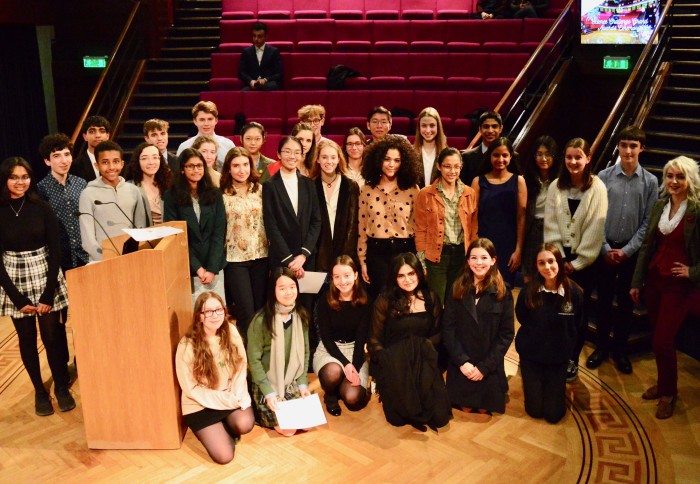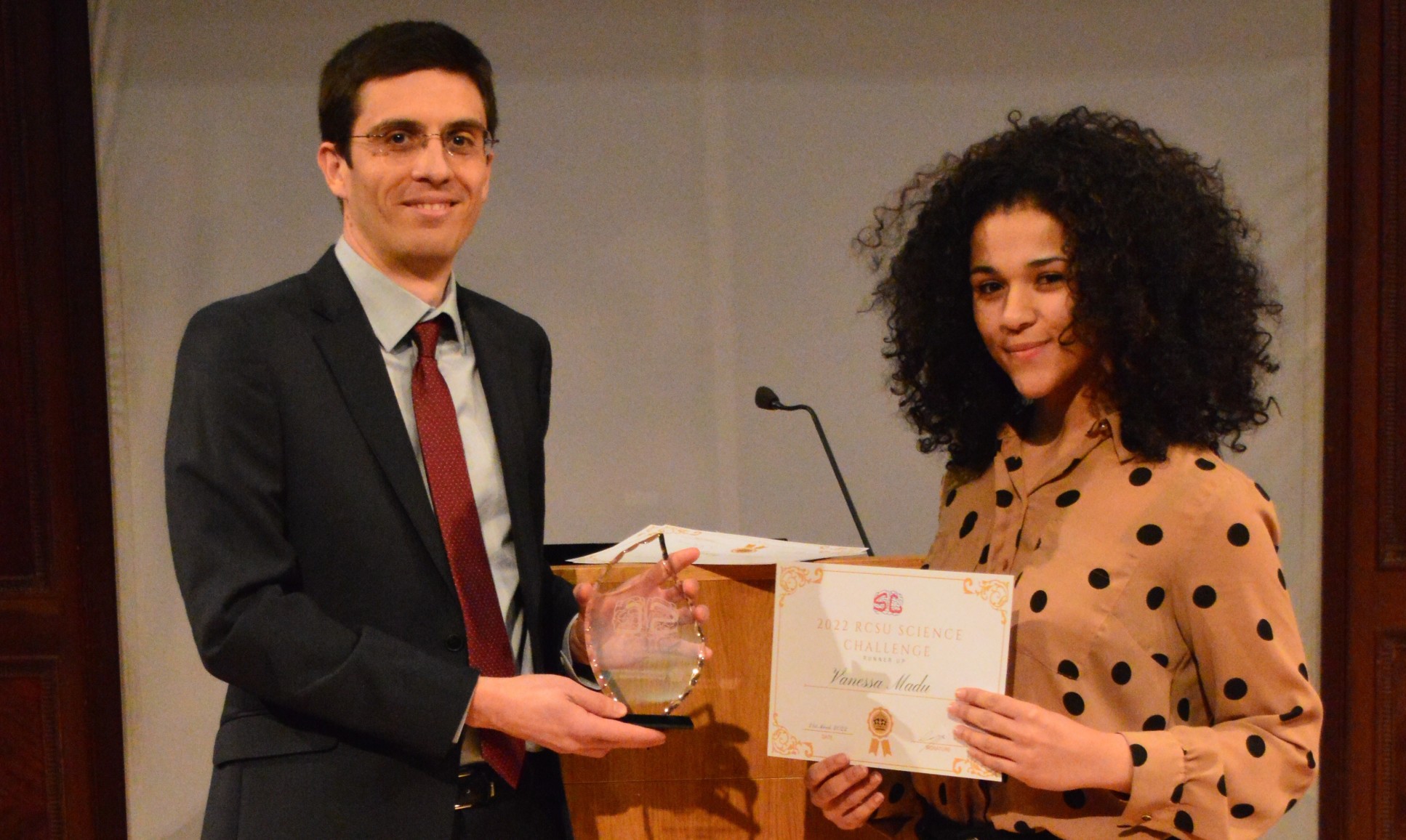Communicating climate change: the winners of the RCSU Science Challenge are...

All the winners and shortlisted finalists at the RCSU Science Challenge Grand Finale 2022
This year’s Science Challenge competition focused on climate change, welcoming entrants from schools across the globe.
The Royal College of Science Union‘s (RCSU) annual competition challenges students to communicate science in an engaging, concise and creative way, and is open to both Imperial students and school students in the last four years of secondary study (or the international equivalent).
It's designed to provoke thought amongst future scientists about how science and its consequences can be effectively used and communicated to solve societal problems.
The judges, the challenges... and the winners!
James Cordon got involved to launch the competition in December, when the expert judging panel set their series of questions, focused around the climate crisis:
Dr Paulo Ceppi's challenge
- How do we know that we humans are causing climate change, rather than natural phenomena?
Dr Paulo Ceppi's (Grantham Institute) research focuses on understanding future climate change at global scales. He asked entrants to deliver a three minute video presentation, pitched for a general audience.
Winner: Marianne Peuch
Imperial College London winner: Vanessa Madu
Professor Kathy Sykes' challenge
- What message would you, as a scientist, like to deliver to a leader in your country about climate change? So, a Prime Minister or President or local leader. What evidence would you use to back up your message?
Physicist and broadcaster, Professor Kathy Sykes (University of Bristol) asked entrants to produce a film of up to three minutes.
Winner: Zerlynde Goik
Runner up: Muhammed Omar Farooq
"It was an absolute joy judging the Science Challenge," says Professor Sykes. "The quality of the entrants was extremely high, and the pleas that they made to a leader to make change were clear, passionate and persuasive. Well done to everyone who was involved!"
Professor Richard Templer's challenge
- By the end of this decade we need to start removing carbon dioxide from the atmosphere if we are to avoid irreversible climate changes. I would like you to critically analyse an approach that is currently being developed from carbon dioxide removal.
Director of Innovation at Imperial's Grantham Institute, Professor Richard Templer, asked entrants to create a video that described their findings on his task above, aimed at a general audience.
Winner: Claire Jin
Runners up: Masha Ullah Radguet and Mukta Sandeep Burde
Professor Templar commented: "I was hugely impressed by the quality, thoughtfulness and insight of the presentations I received. Especially so, since the topic I asked the contributors to look at was atmospheric greenhouse gas removal, an area of new and contentious research and innovation. Bravo to everyone who grappled with the topic!"
Professor Lord Robert Winston's challenge
- Why are so many citizens reluctant to accept that the Earth's climate appears to be changing? Should scientists be worried by this?
Professor Lord Robert Winston is the Science Challenge Ambassador. His advice for entrants? "Whatever you do, above all else, write well, write amusingly, and enjoy yourself doing it."
Winner: Pyncha Soottreenart
Runners up: Milo Smith, Dominika Grabik and Nina Van Derlip

Reflecting on the competition's theme, Imperial winner Vanessa Madu said: "For popular science topics like climate change that make frequent appearances in the media, it can sometimes be the most outrageous or shocking ideas that gain the most traction. Important details can be conveniently missed out, backed by data that has been bent to look favourably on the side of whoever is writing. Communicating science should be about taking scientific principles or results and making them easier to understand for people who don't know all the jargon, but the key is taking care to not misrepresent it in the process.
As a mathematician who knows her way around scientific literature, and as someone that will enthusiastically go on about clustering of microplastic in the ocean, I wanted to take part in the Science Challenge as a fun way to use some of the skills I've acquired in my studies and to learn more about the evidence we have that humans are the ones causing climate change, rather than a natural phenomenon."
After receiving their awards at a ceremony in March at The Royal Institution, the winners and runners-up are now looking forward to visiting Parliament on 31 May.
A huge well done to all those who entered the competition and, a massive thanks to the organisers and judges!
Article text (excluding photos or graphics) © Imperial College London.
Photos and graphics subject to third party copyright used with permission or © Imperial College London.
Reporter
Claudia Cannon
The Grantham Institute for Climate Change